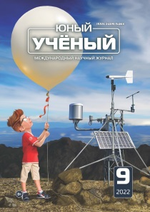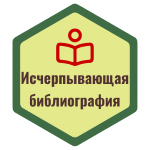Keywords: science, life, environment.
You can define the term «Life» in different ways. Based both on their life experience, and on scientific data.
In this article I prefer to rely on more accurate sources, setting aside my own little life experience and beginning to study life anew, from a scientific point of view.
What do we think of when we hear «Life»? The concepts can be different, and we will never know which one will be true. We will choose the concept that will be more sympathetic to us or the one that fits our knowledge. I think age also plays an important role in shaping the definition.
Life is a rather ambiguous concept, even if we consider it using different sciences.
In studying this topic, we can draw on the natural sciences, this can be said with caution for a certain group of sociologists who find these sciences ideologically suspect and irrelevant. But as soon as we rely only on natural science, we will lose the integrity of the picture — this is said deliberately to molecular fundamentalists who are convinced that sociology has no future against «real» science.
I can confidently say that most philosophical «amateurs» rely only on their own life experiences. They draw their own conclusions and openly impose them on others. They don't own anything else but their own personal. They don't draw on scientific knowledge, they just don't even try to do it. We can find enough people who have vilified this important concept to all of us, Life, it's not even about the age of the person, the cause is his qualities as a person. And here it would be appropriate to involve biology to answer the question of why a person would do this.
We are naturally all very different. Yes, there may be some similarities, but we already get them in the formation of personality. It cannot be that we are born without some qualities. We get them from our parents. A simple example: the color of the skin, the color of the eyes, and so on. But now we are not talking about appearance. We're talking about personality traits. Personally, I believe that a child is a mirror of his parent.
So where am I going with this conclusion?
And I am leading to the fact that all the qualities we acquire at a young age. Later we develop them, or we simply forget about them and try to get rid of them. They play an important role from the beginning to the end of our lives. Let's try to turn to the sciences and finally make sense of it all.
Psychology is a science that lies at the junction of two areas: the social and the natural. Life is a spatiotemporal movement in which the individual develops, acquiring knowledge, skills and experience that will be useful in later interactions with other individuals, but again, we expend energy to accomplish this, and I can definitely say that in studying this subject we must draw on the sciences of these two orientations.
Whereas biology provides a slightly different definition:
Life is the process of preservation and reproduction of existing biological forms subject to their active interaction with the environment.
The only overlap is that it converges on interaction with the environment. This is where a science such as ecology can already be brought in. But at this point I would prefer to narrow down the range of sciences that I will address. Biology, psychology, sociology, physics and chemistry will suffice.
We should not forget that physics is a natural science. We can forget this, because formulas and calculations have eclipsed our minds, and relegate physics to an engineering focus. But if we wish, we can explore this topic using knowledge of mathematics as well, I think it will be much more interesting and unusual. Mathematics does not include many answers like most other sciences. Mathematics has two «Yes» or «No» answers. In mathematics, everything is very easy and simple, you just have to know the formulas and theorems and practice a lot. Whereas in the social sciences and the natural sciences, it is not so simple. We will not find an exact answer to our question, even if we read a scientist's book. Everyone has his or her own view of the world and the questions at hand. We can disagree with something, and that will be perfectly normal, but we will not get to the real and real. Each of us has different concepts and standards and based on them we will form the truth for ourselves.
What is life in terms of physics?
The Austrian theoretical physicist, one of the founders of quantum mechanics, Erwin Schrödinger, in his famous book «What is life in terms of physics» first formulated and answered a number of questions in biophysics. Accordingly, therein lay the aforementioned question «What is life?"
Formulating what seems to me to be the easiest definition, based on the material in that book, it can be said that: Life is the ordered and regular behavior of matter, based not only on one tendency to move from orderliness to disorderliness, but in part on the existence of an orderliness that is maintained all the time.
Additionally, I would like to say that our whole life consists of feelings. Finally, we will not get rid of feelings, they will always be with us, even if not all of them, but some of them will be for sure.
All feelings are a biochemical process in our head. The brain feeds impulses to various parts of our body, and so we begin to feel something. But again, referring to the public excerpt «There are reasons for everything», we can say that the direction of these impulses will depend on the world around us.
In this article we have learned a fair amount of scientific information, as I think it is important that the natural sciences enter into symbiosis with the social sciences! In this way, we can try to explain some topics with ease!
References:
- Schrödinger, E. What Is Life? Schrödinger. -: Cambridge University Press, 1944. — 194 c. — Text: immediate.
- Feynman, R. Nature of physical laws / R. Feynman. — Moskow: AST, 2021. — 285 c. — Text: immediate.
- Feynman, R. Do you care what others think? / R. Feynman. — Moskow: AST, 2021. — 317 c. — Text: direct.
- Feynman, R. Modern Science of Nature / R. Feynman. — Moskow: AST, 2021. — 251 c. — Text: immediate.
- Sigmund, Freud Obsession, paranoia, and perversion / Freud Sigmund. — Moskow: Azbuka-Attikus, 2015. — 317 c. — Text: immediate.
- Kleyn, A. English Russian Scientific Dictionary / A. Kleyn. -:, 2006. — c. — Text: immediate.
- Ermakova, M. «What is life?" / M. Ermakova. — Text: electronic // vk.com: [website]. — URL: https://vk.com/blackkkkkkkk7 (date of reference: 19.09.2022).










